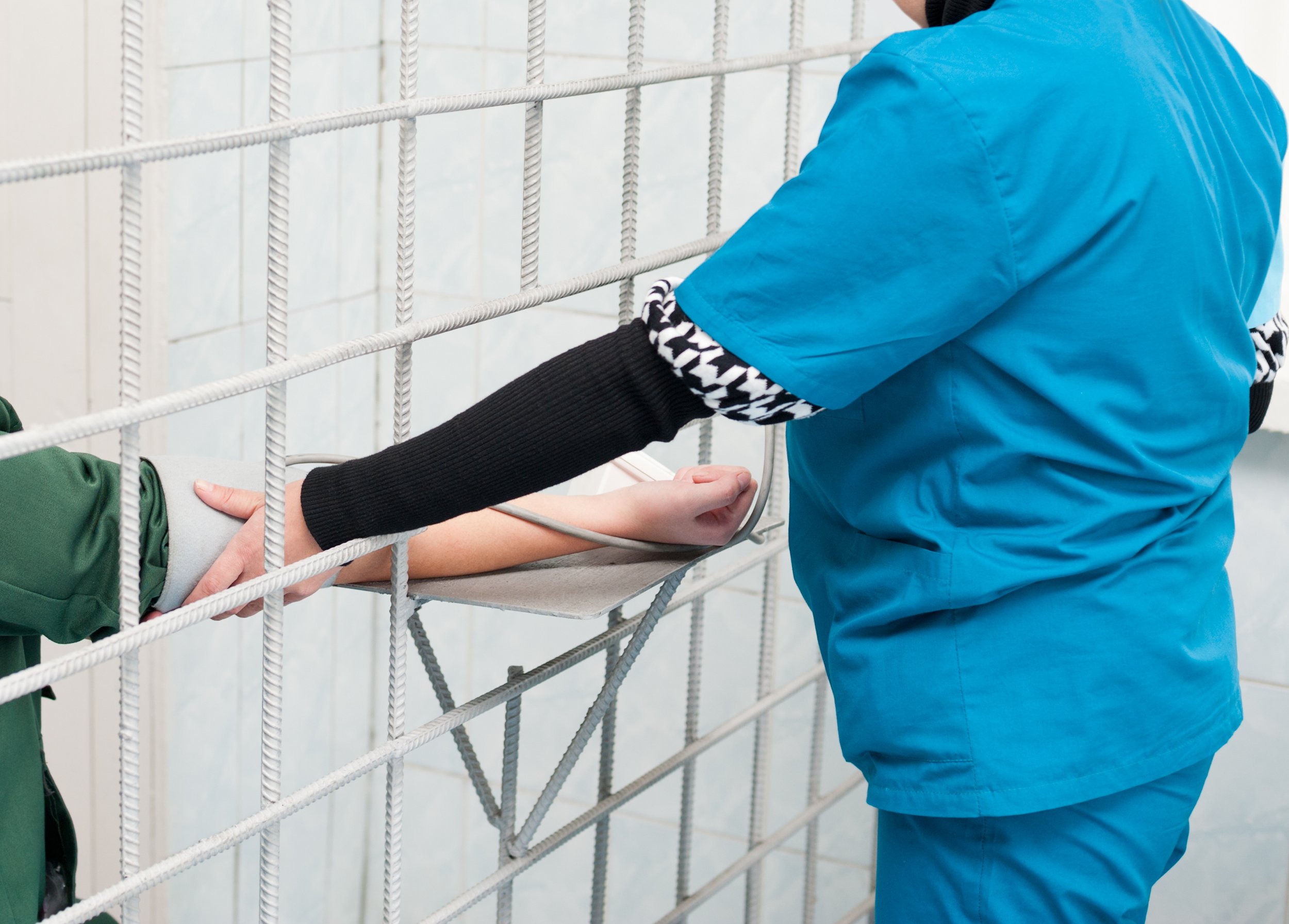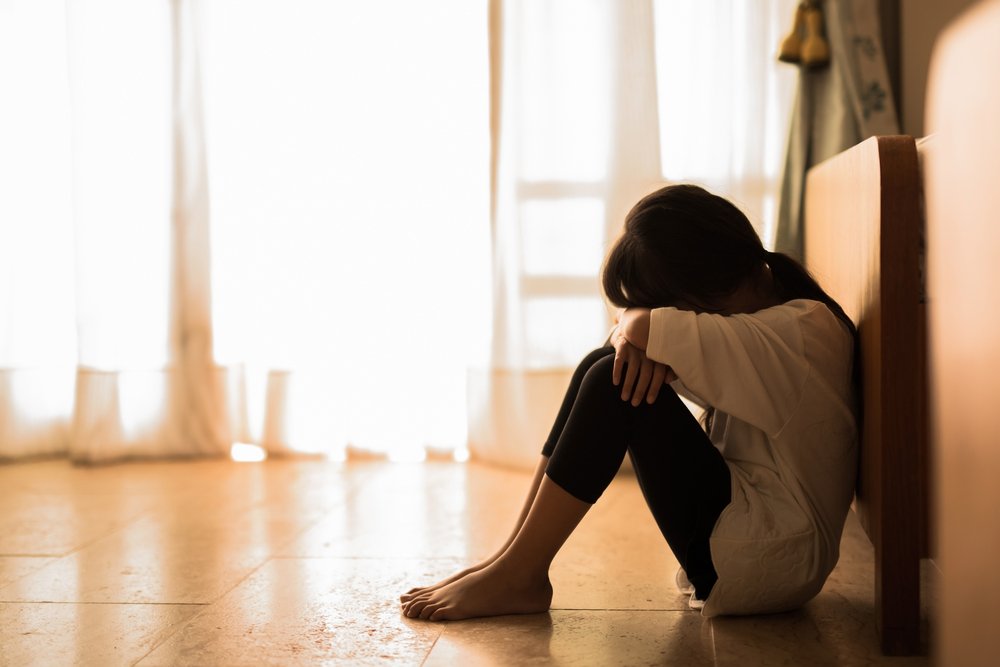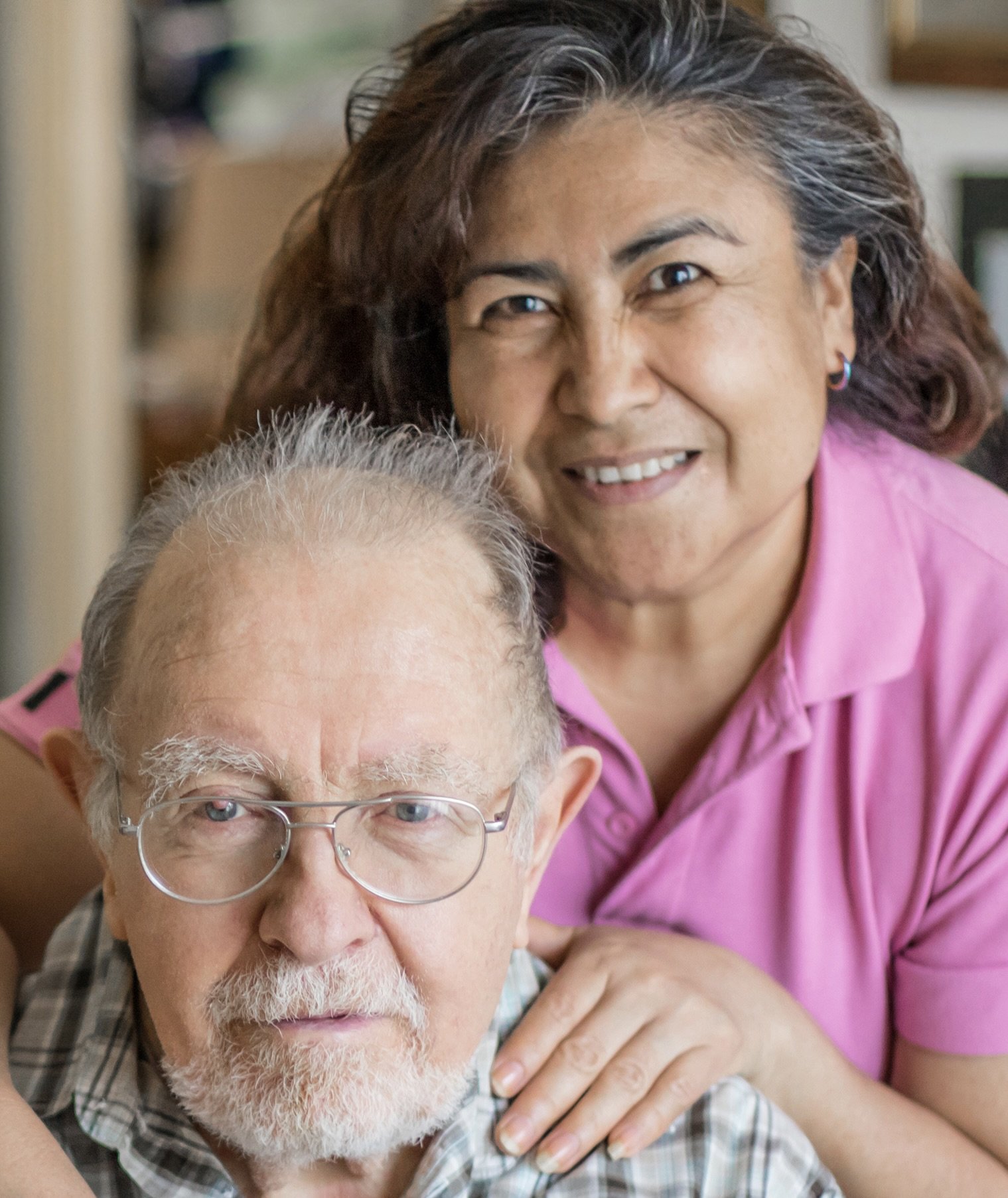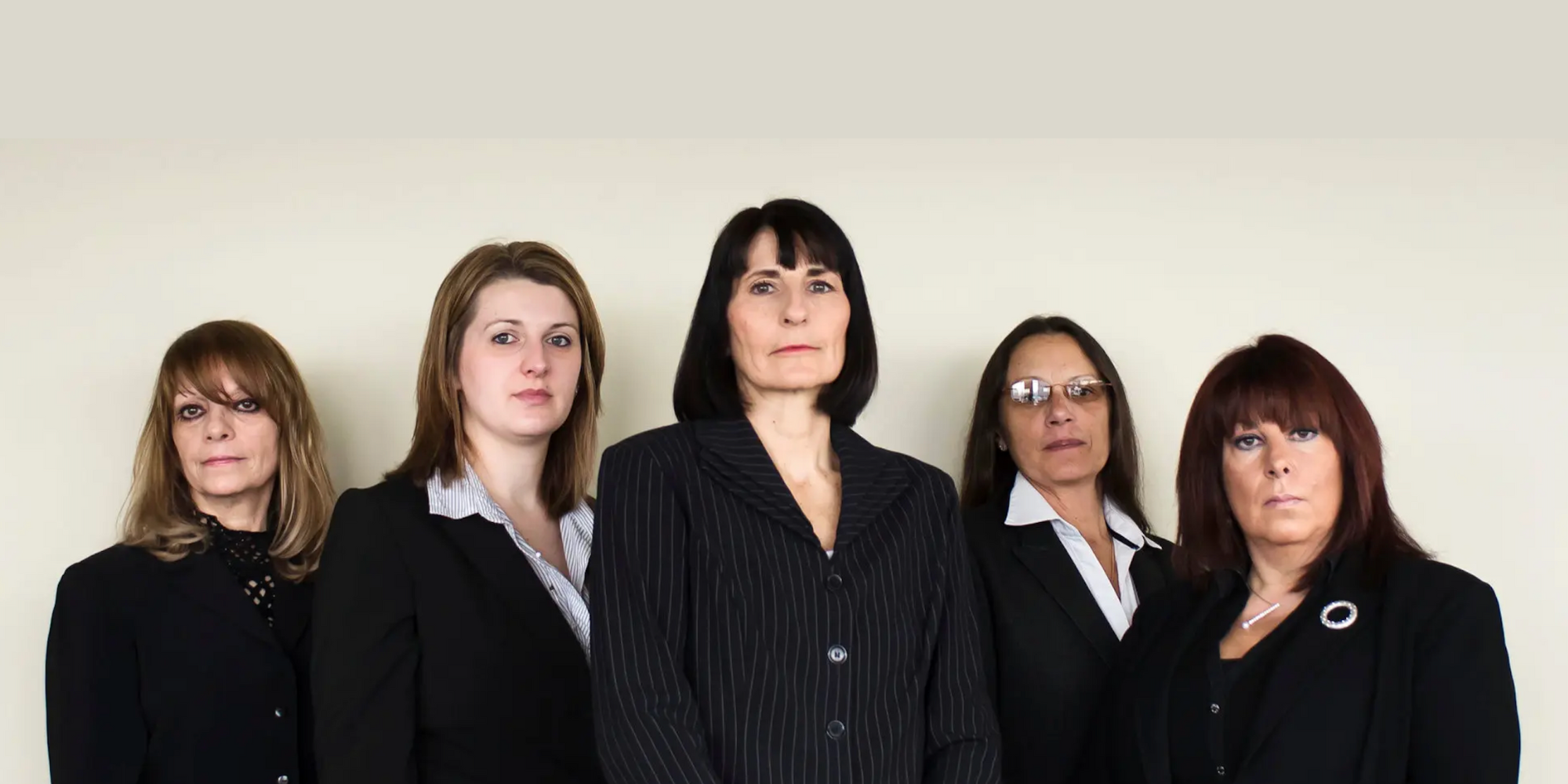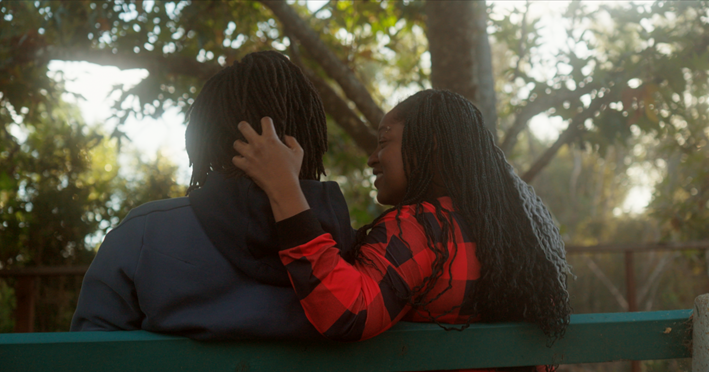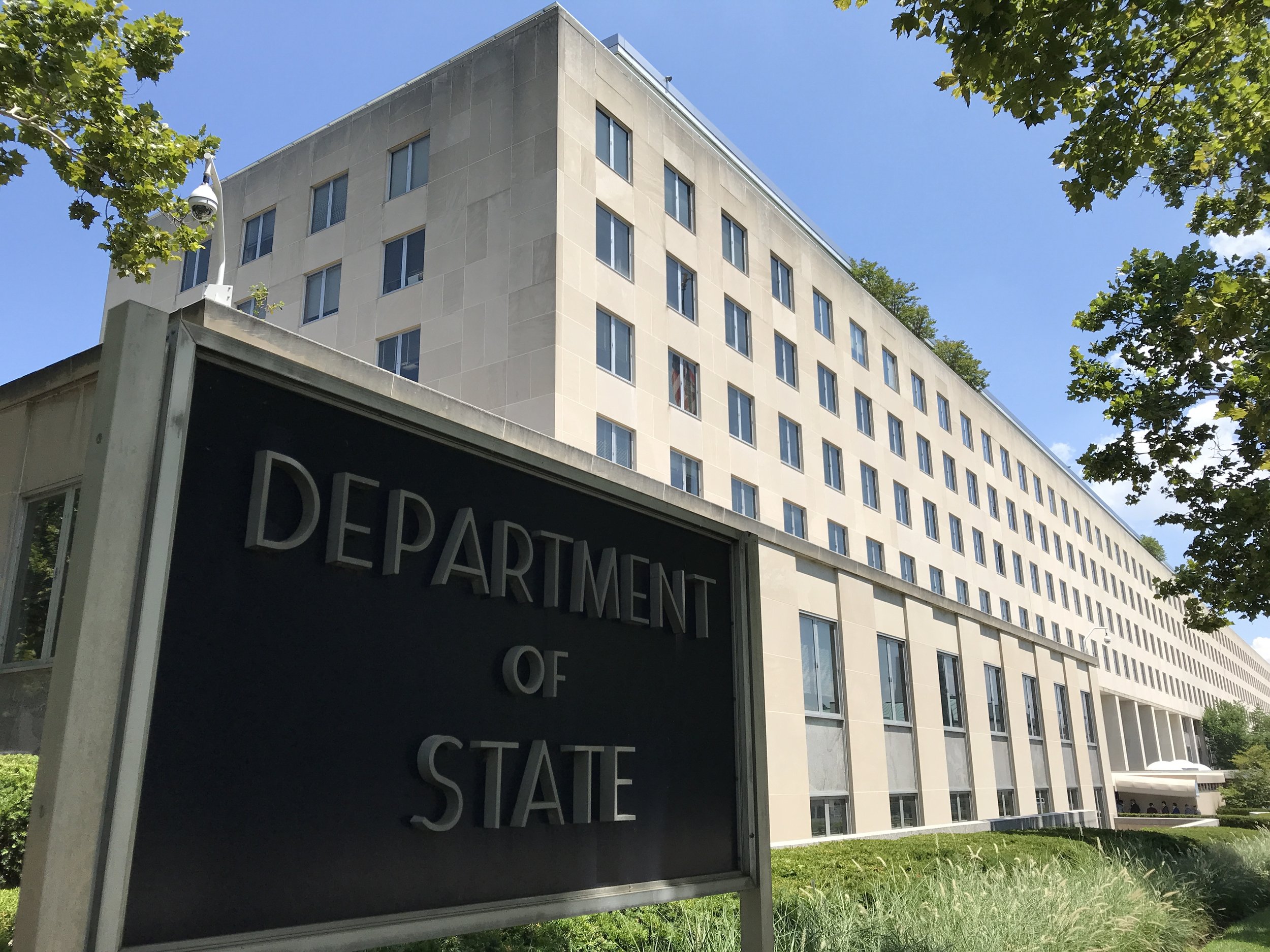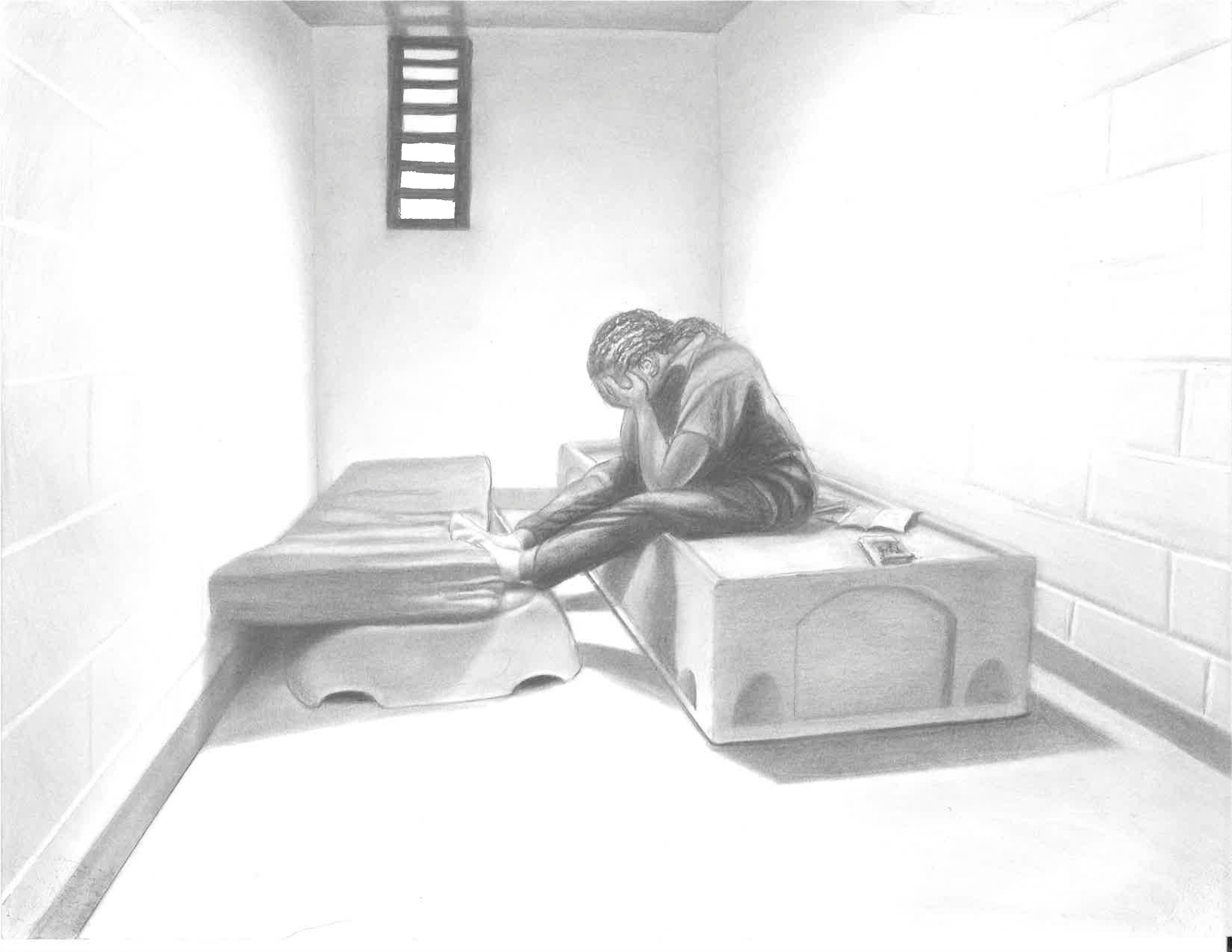Receiving Medical and Mental Healthcare on the Inside
Lesley Nash, Staff Attorney, Mountain State Justice
No one expects going to jail [1] to be pleasant. In West Virginia, however, going to jail can be more than just an unpleasant experience, due in part to a major function of jails that many people who have never been to one may not consider: healthcare.
People who are being detained in a jail can’t just go to a doctor when they want or need to; instead, they must rely on the medical and mental healthcare being provided in the jail. That’s difficult enough if you have a chronic condition like asthma or diabetes; you may not be allowed to keep your inhaler on you, for example, or you may be placed on set doses of insulin rather than receiving amounts tailored to your blood sugar levels. Many people who end up in jails, particularly in West Virginia, aren’t only struggling with these types of conditions but may (also) be dealing with serious addiction or mental health issues. People enter jails in need of high quality medical and mental healthcare, provided in a timely and professional manner. What many people have received in West Virginia jails in recent years, however, is anything but that.
This problem isn’t unique to West Virginia, but it is extreme in our state: in a report from October 2020, Reuters found that the death rate in West Virginia jails was more than 50 percent higher than the average national death rate for the period from 2009 to 2019. People incarcerated in West Virginia jails are dying from suicide, from overdoses, and from illness, including COVID. Many of these deaths point to the same underlying problem: a lack of sufficient medical and mental healthcare in West Virginia’s ten regional jails.
That’s the background. This is the case.
In 2019, Mountain State Justice was appointed counsel for a group of incarcerated people who had filed a pro se complaint about serious issues they were experiencing while being held at Western Regional Jail in West Virginia. Over time, this case became focused on one main issue: the quality (or lack thereof) of medical and mental healthcare in all ten regional jails in West Virginia.
A pro se complaint is filed for one’s own behalf, without representation from legal counsel.
This case, Baxley v. Jividen, argued that the medical and mental healthcare being provided in the ten regional jails in West Virginia was so poor that the West Virginia Division of Corrections and Rehabilitation was violating the Eighth and Fourteenth Amendment rights of people who were incarcerated in those facilities. Although initially started by a small group of individuals, in 2020, the case was certified as a class action, with a class including everyone who is currently or in the future will be incarcerated in a West Virginia regional jail.
Along with a class spanning tens of thousands of known and unknown individuals, the Baxley case also had six spectacular named class representatives, people who, despite either currently being or recently having been incarcerated, were willing to speak out about the lack of healthcare they’d received. Even more admirably, the case sought only to change the system and improve the healthcare being provided, and so these six named class representatives accepted the burden of representing the class, speaking out, and potentially risking their own safety with no expectation of monetary compensation for their time, hard work, and dedication.
Each of our named class representatives, every incarcerated person who spoke to us or our medical experts, and every individual who went through a deposition or provided a declaration for this lawsuit did so not because they wanted to be financially compensated, but because they wanted to ensure that the poor care and horrible experiences they had endured did not happen to others.
We walked up to the brink of trial and then, in May 2022, reached a settlement with DCR that we believe will vastly improve the medical and mental healthcare provided in the regional jails. There is a new medical contract in place, the Division of Corrections has implemented for the first time an internal audit system with three full-time employees, and for the next two years, Mountain State Justice will be reviewing internal reports, receiving aggregated data and individual files, and speaking with incarcerated people across all ten facilities to ensure that the better care our class fought for and deserves is being provided. On September 27, 2022, the Southern District of West Virginia entered an order approving our settlement (which you can read here).
This case started with a group of incarcerated people deciding to stand up for their rights with the hope of improving conditions for everyone incarcerated in Western Regional Jail. Though not ended, the case has now reached a milestone where medical and mental health care will become better for everyone incarcerated in all West Virginia regional jails. We at Mountain State Justice are privileged to have served and continue serving as counsel for this class. We are excited to have entered our settlement implementation period and are already hard at work ensuring that the healthcare people need is provided to them in West Virginia jails.
[1] In case you don’t know, or get them mixed up, although the terms ‘jail’ and ‘prison’ are often used interchangeably, they are different. A jail is a place where people who are waiting to go to trial, or who are in on minor charges, or who haven’t yet been sentenced or moved to a prison are housed. A prison is a place where people who have been convicted for more serious crimes are housed. Every facility is different, but generally speaking, jails and prisons are very different places, with very different problems.


